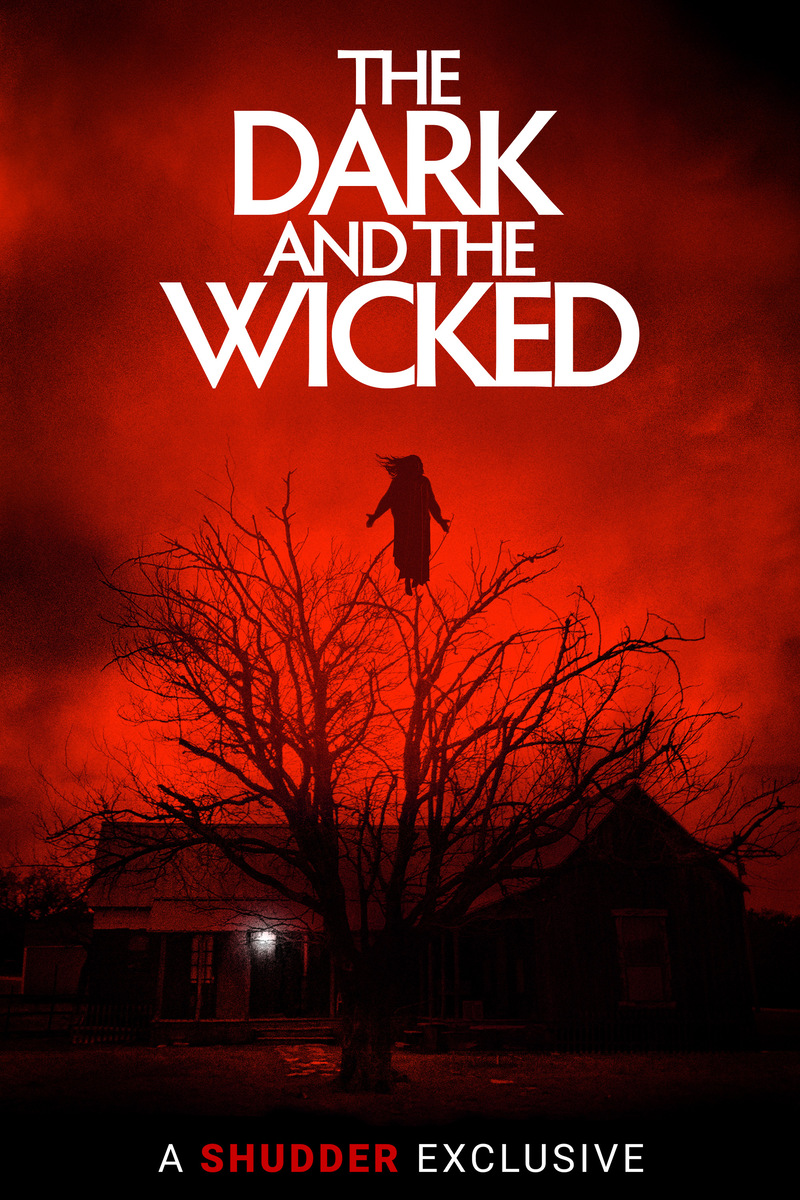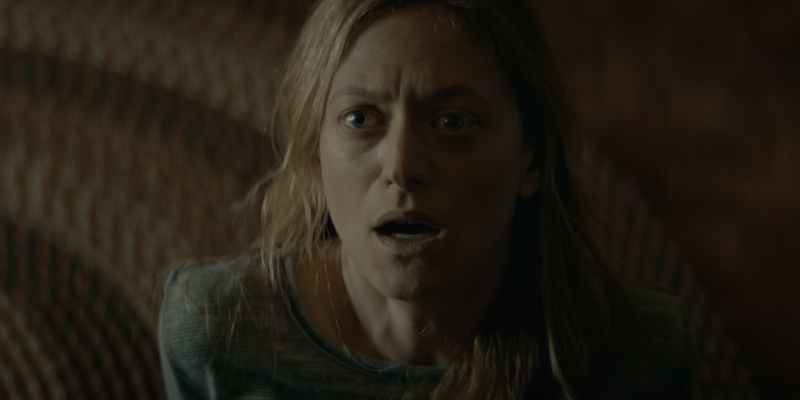
Review by
Eric Hillis
Directed by: Bryan Bertino
Starring: Marin Ireland, Michael Abbott Jr., Julie Oliver-Touchstone, Xander Berkeley, Ella
Ballantine

If you've watched enough horror movies you've no doubt found yourself
shouting at characters to "Just leave the effin' house already!" at some
point. With The Dark and the Wicked, writer/director Bryan Bertino finds a novel way to get around
this. His protagonists - adult siblings Louise (Marin Ireland) and
Michael (Michael Abbott Jr) - can't leave their parents' haunted
farmhouse because their Dad (Michael Zagst) is bedridden with a
terminal condition, and any attempt to move him will likely result in his
immediate death.

Bertino's films generally follow a set format whereby his protagonists are
dealing with relatable problems - a failing marriage in
The Strangers and drug addiction in
The Monster
- only to then find themselves battling some less grounded, external foe.
This continues with The Dark and the Wicked, which begins like a Sundance indie about siblings returning home and
dealing with the guilt they feel over neglecting their parents. But then the
Devil shows up and it becomes a literal fight for survival.
As if dealing with their father's condition wasn't enough for Louise and
Michael, a day after arriving home their mother (Julie Oliver-Touchstone) hangs herself in the farm's barn. The assigned hospice nurse (Lynn Andrews) - one of those "magic Catholic" types so beloved of American horror
movies - tells Louise and Michael that she had been worried for their Mom,
who had spoken about something being out to get her. A perusal of their late
mother's diary confirms that she believed an evil presence was haunting the
farm.

Another magic Catholic arrives in the form of a sinister priest (Xander Berkeley), who claims he warned their mother and is now giving Louise and Michael
the same advice - GTFO the farm before it's too late! Louise and Michael are
atheists, as was their mother, and they dismiss the clergyman's warnings as
the ravings of a twisted fundamentalist. This sets up an interesting dynamic
that the film sadly fails to explore. As someone who doesn't believe in God,
"Evil" or the supernatural, part of the appeal of the horror genre for me is
the idea that I might be wrong and that Evil may exist whether I believe in
it or not. As Berkeley's priest puts it, "A wolf doesn't care if you don't
believe in wolves." But the priest figure devolves into a cheap prop,
initially delivering a bit of spooky exposition and then being employed for
a couple of jump scares.
Bertino exploits his film's isolated setting to create a spooky atmosphere,
greatly aided by sound design that surrounds us with whistling gusts of
wind, creaky barn doors and the constant cries of the farm's herd of goats.
Jump scares are thankfully kept to a minimum, and there are some nice
moments involving shadows and half-glimpsed figures in the background. But
most of the film's effectiveness comes courtesy of the performance of
Ireland as one of those all too rare horror heroines who seems as genuinely
terrified as she should be given the scenario she's facing. The best horror
heroines are those who find the strength to face the antagonist yet remain
realistically petrified (the original
Halloween's Laurie Strode being the prime example), and Ireland's Louise falls into
that category.

Where The Dark and the Wicked fails is in its mythology, or
rather lack thereof. It's never made clear just what it is Louise and
Michael are up against here, and the malevolent force that menaces them
seems to work in contradictory ways. Initially it seems to assume the form
of deceased loved ones to taunt its chosen victims, but then we later see it
appear as people who are total strangers to Louise and Michael. No
explanation is given for why it has chosen to pick on the inhabitants of
this seemingly random farmhouse. With no rules established, Bertino's film
feels like it's making up its mythology on the fly, and so it's difficult to
get invested in a movie where anything can seemingly happen at any given
time without rhyme or reason.


